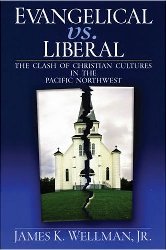
In these economically challenging times, it is hard to turn down a good deal. Who really wants to pay more for an item when it can be bought for less? It’s completely logical to buy the desired product for the cheapest price available. If the item can be purchased online for $8.99 plus $3.99 for shipping for a total of $12.98, why would it make sense to buy the same item at a local retailer for $16.99? Sure, one has to wait for the item to arrive in the mail, but the inconvenience still translates into savings. For the consumer, obtaining the desired item at the cheapest price just makes sense. And, in this context, it really doesn’t matter if the savings are found through an online retailer, a big-box store, or a locally owned, independent retailer: savings are savings, and the money saved can now be used for a myriad of other needs and wants. But, things may not be as clear-cut as they first appear. Savings may not be savings, or said differently: short-term savings may be long-term losses. Adelle Bank’s article “Christian Retailers Seek Federal Probe of Competitors” provides insight into this confounding situation as she covers the financial crunch experienced by independent Christian retailers.

CBA, the acronym for the Association for Christian Retail, recently sent a letter to the U.S. Department of Justice petitioning them to launch an investigation into the pricing strategies employed by Wal-Mart, Target, and Amazon.com. CBA claims that these retail giants are using “illegal, predatory pricing” models that are engineered to enlarge their market share by undercutting independent retailers. In support of their claim, CBA pointed to the pricing of Stephen King’s new novel Under the Dome. For independent retailers, King’s novel costs $17.50 just to get it on the shelf. After mark-up, the retail price tag may be upwards of $35.00. In contrast, Amazon.com, Target, and Wal-Mart offer the same novel with the retail price of $8.98 to $9.00. Clearly, any independent retailer trying to compete with these low prices would face sizable losses.
CBA retailers are not selling King’s Under the Dome, but they cited his novel in their letter to the Justice Department as a “pre-emptive” measure. According to Eric Grimm, CBA’s business development manager,”What we want to do is establish that this is an unfair practice so that when the next big blockbuster comes out of a Christian book, they won’t do the same thing.” Furthermore, the radical price difference between big-box retailers and smaller independent shops also impacts the psychology of consumers. Grimm observes that consumers visiting independent Christian retailers “mistakenly think they are being charged too much for some books,” when in fact, “store owners would have to shut their doors” if prices mirrored those of the large retailers.
When queried by Bank, Wal-Mart and Target responded to the charges leveled by CBA, while Amazon.com did not answer her request and the Department of Justice declined to comment. Wal-Mar’s spokesperson, Greg Rossiter, remarked “I think it’s worth noting that there is no investigation” and, moreover,”W’re serving our customers and, in terms of any legal concerns, we also work to follow applicable laws” Similarly Target’s spokesperson, Leah Guimond, stated”Target is firmly committed to respecting all laws and operating in compliance with all legal and regulatory standards. Within this context, we seek to be competitive in the marketplace.” From the perspective of Wal-Mart and Target, their pricing models conform to current legal standards.
As independent local retailers experience the financial crunch fueled by a struggling economy and the “predatory pricing” of larger vendors they face the potential of closing their businesses. When local independent shops are forced to close, they leave behind vacant retail space that may have an adverse impact on surrounding businesses and neighborhoods. Their absence also diminishes the funds flowing into the local economy since a higher percentage of each dollar spent locally remains within the community for local use. Grimm foresees another implication as well. If “predatory pricing” continues unchecked, there will be “fewer new voices entering the marketplace as publishers rely on popular authors who are more likely to generate big sales.” As the number of independent retailers decline, the diversity of authorial voices will be reduced. Large retailers will only carry those books promising voluminous sales, thereby encouraging the publishing industry to focus primarily on blockbusters.
Adelle Bank’s article provokes further consideration and investigation. When there is an item needing to be purchased for the home or for the church, is purchasing the item at the lowest cost the most prudent act? It may seem so in the moment, but as the controversy between Christian retailers and big-box stores highlights, lower prices may have hidden costs on a number of fronts. As conscientious consumers concerned with the wellbeing of our families, our churches, and our neighborhoods, Bank’s article encourages us to make these hidden costs known.
Links
To read Adelle M. Bank’s article “Christian Retailers Seek Federal Probe of Competitors” click here.


